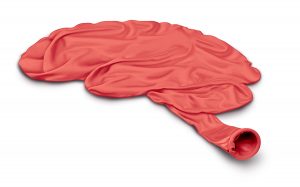 Do you wish you could boost energy? Like many seniors, in the last few years I’ve experienced a loss of energy. Where’s my mojo? Where are the moments of child-like wonder and unbridled enthusiasm? What I didn’t know was that a lot of energy drain is due to our mitochondria, the energy-generating organelles inside our cells. We lose mitochondria as we age.
Do you wish you could boost energy? Like many seniors, in the last few years I’ve experienced a loss of energy. Where’s my mojo? Where are the moments of child-like wonder and unbridled enthusiasm? What I didn’t know was that a lot of energy drain is due to our mitochondria, the energy-generating organelles inside our cells. We lose mitochondria as we age.
Lack of get-up-and-go can be due to a lot of things, some of it psychological. But it can also be due to low fuel resources in cells because of faulty metabolism, lack of vitamins, minerals, or enzymes. When that happens, then motivational pep talks will still leave you on the couch.
With age, there’s a decrease in the number of energy-generating mitochondria. We just aren’t generating the energy molecules from mitochondria that drive our muscles. This can result in lethargy. We might misinterpret it as laziness when it’s really a consequence of faulty chemical processing due to dying mitochondria. And some of this can be boosted with lifestyle factors.
How to Boost Energy
After I started reading Dr. Michael Chang’s book. Mitochondrial Dysfunction, I gained a new understanding of how energy is created by the mitochondria and what we can do to optimize the chemical processes.
Here’s a sample from the book:
- To optimize mitochondrial function, we have to avoid exposure to chemicals, pollutants, and toxins including biotoxins and heavy metals.
- Avoid medications like psychotropics, statins, and antibiotics, if possible.
- Reduce stress: emotional, physical, and dietary.
- Treat infections and inflammation including autoimmune conditions.
- Avoid caloric excess, alcohol, and a sedentary lifestyle.
- Avoid EMF exposure that damages mitochondria.
Making the Most of Mitochondria
You may not think about your mitochondria often; you certainly can’t see them. But the same healthy habits to live longer and prevent the chronic diseases of aging are what’s needed for healthy mitochondria.
There are no medications that directly target mitochondrial function. But all of the six ways to improve functioning listed above are free and available to all. While some medications might be necessary, some can be eliminated once we stop poor diet, inadequate sleep, and sedentary lifestyles.
Boost Energy by Decreasing Toxins
We need to educate ourselves on the toxic nature of our environments, processed foods, unhealthy fats, sugar, and chemicals found in skin care products and other places.
Until recently, I didn’t know that too much blue light from computers, television, and electronic devices can be detrimental to health. I’m now wearing blue-blocking glasses to protect my eyes.
Boost Energy by Lowering Stress
Too often, and especially during pandemic situations, we experience too much stress and we don’t take good care of ourselves. In a cascade of unhealthy anxiety, we lose desire to workout, to eat well, and we lose sleep. If the mitochondria don’t get the necessary chemicals, fats, proteins, enzymes, and fuel, they can’t replicate and you lose a cell. A cell here, a cell there.
Before you know it, you’ve lost another percentage of muscle or bone. Exercise helps prevent that loss, and optimizes long-lasting, healthy replicating mitochondria. It’s a slippery slope. One of the ways seniors slide into unhealthy habits is what I call a “don’t-feel-like-it” mood. It starts with skipping a scheduled exercise, or eating just one cookie. It ends in pizza for dinner and a late night bowl of ice cream.
Which leads me to say, it’s easier to slide down than to slide back up. But with practice, and we’ve got plenty of time for that, we can get quite good at digging ourselves out of the stress-pit. That’s what our next post is about. Stay tuned.

Recent Comments